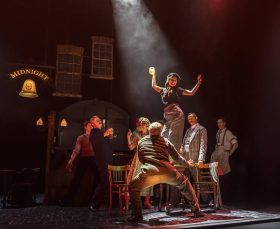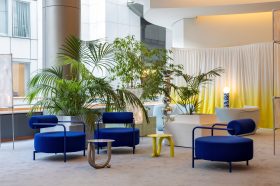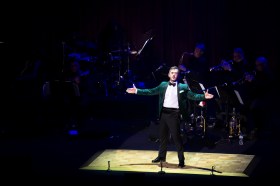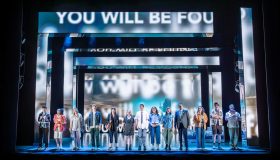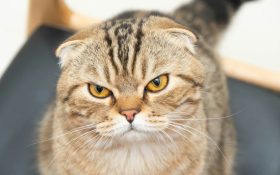Two years ago, Artistic Director Caryne Chapman Clark had a dream to start a theatrical organisation for refugee artists in London. Her initial search to find actors who had fled their countries drew a number of blanks before she stumbled upon a Refugee Artists Exchange Day. The arts organisation she has founded as a result, Artists in Exile (AiE), has developed so fast it’s now moving towards artists’ self government which, she says, was the initial goal.
‘As soon as I moved to London I had a notion what I really wanted to do was to start up a professional theatre company that was made largely of unprofessional exile actors,’ Clark recalls.
But this all changed, she says, at the Second Refugee Artists Exchange Day in 2000, one strand of the London Arts ‘Refugees and the Arts Initiative’ (RAI) providing an opportunity for refugee artists to network and form new collaborations.
‘When I went there, I realised this was a whole area that hadn’t even been capped yet,’ Clark explains, adding that after three months of research through a partnership sprung from the Exchange Day, she realised the project was going to be a whole lot more ambitious than she ever imagined.
‘As we began to meet refugee artists, we weren’t just meeting people involved in theatre, we were meeting writers, we were meeting visual artists – and everyone said the same thing – ‘we’d love some kind of form for us to develop our art’.’
Valerie Synmoie, Access Officer at London Arts, agrees the refugee artist movement has only just been realised, commenting the role London Arts played was more hands on than any other project previously undertaken.
‘The funding program hasn’t just been about awarding grants, its been very much about supporting the organisations; finding venues to showcase their work, publicity, contacting the media, there’s been a level of hand-holding along the way which has been really beneficial,’ she said.
Working with artists from culturally diverse background hits close to home for Clark. Originally from Canada, her parents were first generation Canadian Jews forced to flee Russia and Poland.
Clark, now a resident of the UK for over 20 years, says she has always been drawn to cross-cultural projects.
Before Artists in Exile, she previously founded a company focusing on international theatre exchanges, GOG Theatre Company, in Somerset in 1981.
‘I’ve always had that a part of my personal creative journey,’ Clark comments. ‘I feel I am kind of a transient person and I’m curious about people who are on the move.’
But even after 25 years in the industry, Clark feels AiE has blown away all the preconceptions she had about working with refugee artists.
‘It’s been a huge learning curve for me in all kinds of assumptions I had,’ Clark emphasises, adding that in the beginning she thought the project would involve the artists telling their tales of exile through their work. However, this has not necessarily been the case.
‘People want to be known first as artists, our focus has never been overtly on personal testimony, although it comes in indirectly,’ Clark explains. ‘When people started to talk about their personal stories, they did it in a really stoic and matter of fact way – you’ll be on a break, discussing the weather, then they’ll tell you about the three times they were almost killed, they’ll show you the scars on their head, their chest…’ she trails off.
‘It cuts through a lot of assumptions people have about what others have gone through,’ she concludes.
After the first AiE meeting in 2000 attracted about 30 artists, resulting in what Clark recalls as an ‘extraordinary orchestra of language’ when the group were invited to introduce themselves in their mother tongue, AIE now has 70 members from over 35 countries including indigenous UK artists.
The group meets once a week to workshop, share and practice ideas and plan collective work at their Riverside Studios base.
It’s an interesting time for the company, who are now looking to move to a new model of organisation, with the artists taking the reigns.
‘It grew very fast as a movement,’ Clark says. ‘The first year was about finding a voice, the second year about the artists having more control, now, we are ready to look at this potential dream of a self-governing and artist-led organisation.’
This will be mediated through a manifesto, Clark explains, based on Augusto Boal’s early 1970’s interactive theatre form, Techniques of Forum and Legislative Theatre.
A theatrical piece will be devised and performed to highlight issues and find solutions through audience interaction, who will vote on solutions and proposals which will form the reconstruction of AiE as a new legal organisation.
The 7th Refugee Artists Exchange Day takes place on October 19, for further information contact Valerie Synmoie 020 7608 6119 or email
For more information about Artists in Exile visit the website
